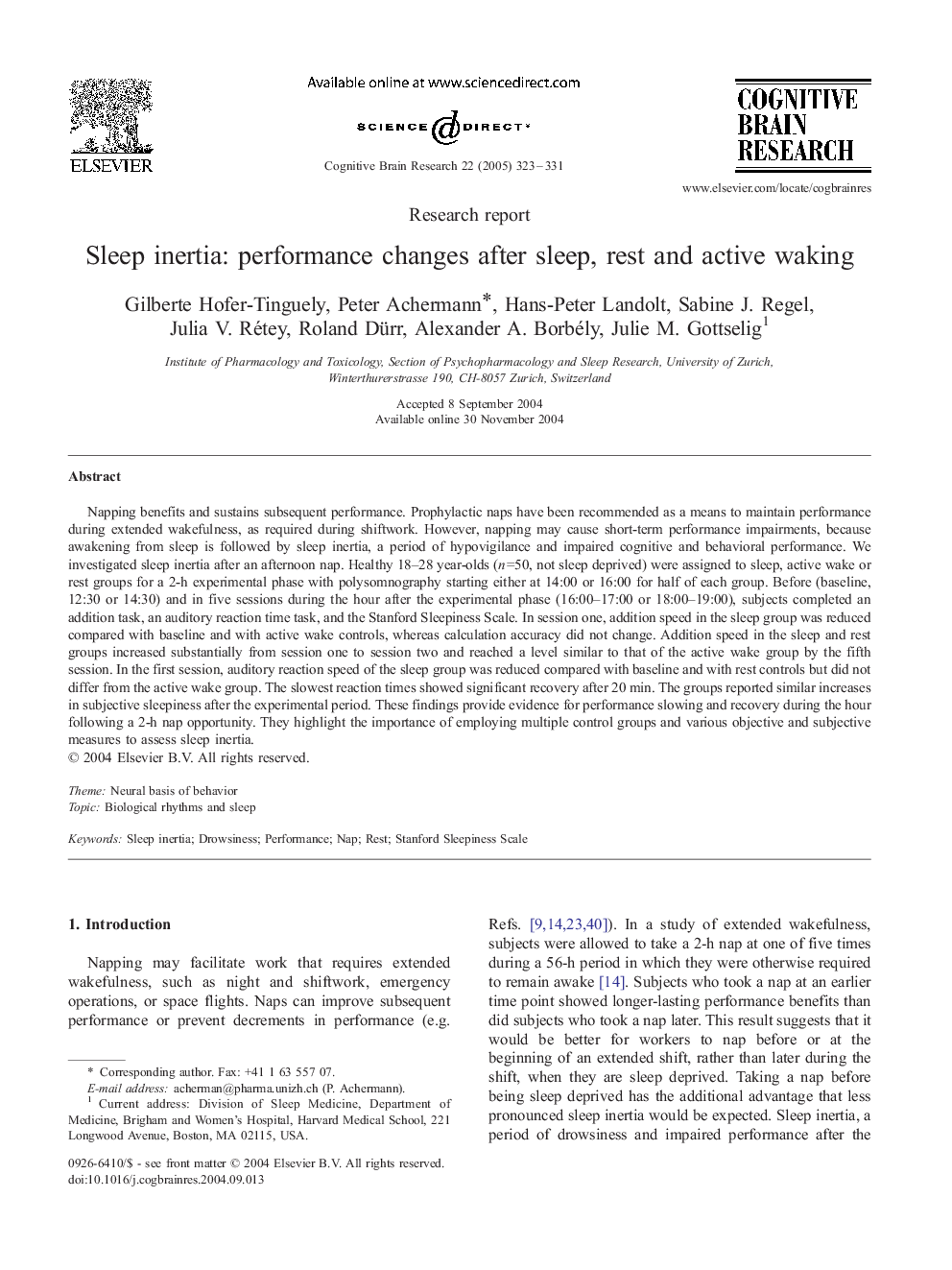| کد مقاله | کد نشریه | سال انتشار | مقاله انگلیسی | نسخه تمام متن |
|---|---|---|---|---|
| 9408190 | 1613041 | 2005 | 9 صفحه PDF | دانلود رایگان |
عنوان انگلیسی مقاله ISI
Sleep inertia: performance changes after sleep, rest and active waking
دانلود مقاله + سفارش ترجمه
دانلود مقاله ISI انگلیسی
رایگان برای ایرانیان
کلمات کلیدی
موضوعات مرتبط
علوم زیستی و بیوفناوری
علم عصب شناسی
علوم اعصاب رفتاری
پیش نمایش صفحه اول مقاله

چکیده انگلیسی
Napping benefits and sustains subsequent performance. Prophylactic naps have been recommended as a means to maintain performance during extended wakefulness, as required during shiftwork. However, napping may cause short-term performance impairments, because awakening from sleep is followed by sleep inertia, a period of hypovigilance and impaired cognitive and behavioral performance. We investigated sleep inertia after an afternoon nap. Healthy 18-28 year-olds (n=50, not sleep deprived) were assigned to sleep, active wake or rest groups for a 2-h experimental phase with polysomnography starting either at 14:00 or 16:00 for half of each group. Before (baseline, 12:30 or 14:30) and in five sessions during the hour after the experimental phase (16:00-17:00 or 18:00-19:00), subjects completed an addition task, an auditory reaction time task, and the Stanford Sleepiness Scale. In session one, addition speed in the sleep group was reduced compared with baseline and with active wake controls, whereas calculation accuracy did not change. Addition speed in the sleep and rest groups increased substantially from session one to session two and reached a level similar to that of the active wake group by the fifth session. In the first session, auditory reaction speed of the sleep group was reduced compared with baseline and with rest controls but did not differ from the active wake group. The slowest reaction times showed significant recovery after 20 min. The groups reported similar increases in subjective sleepiness after the experimental period. These findings provide evidence for performance slowing and recovery during the hour following a 2-h nap opportunity. They highlight the importance of employing multiple control groups and various objective and subjective measures to assess sleep inertia.
ناشر
Database: Elsevier - ScienceDirect (ساینس دایرکت)
Journal: Cognitive Brain Research - Volume 22, Issue 3, March 2005, Pages 323-331
Journal: Cognitive Brain Research - Volume 22, Issue 3, March 2005, Pages 323-331
نویسندگان
Gilberte Hofer-Tinguely, Peter Achermann, Hans-Peter Landolt, Sabine J. Regel, Julia V. Rétey, Roland Dürr, Alexander A. Borbély, Julie M. Gottselig,